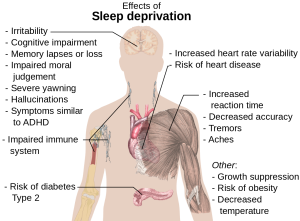Six Ways To Improve The Quality Of Your Sleep
Sleep disorders account for a great deal of trouble that people experience physically and emotionally.
Our quality of sleep is all too often taken for granted.
At different times in life we need more or less sleep but a lack of sleep, or lack of sound sleep, can have a profoundly negative effect on our immune system and quality of life.
Sleep deprivation can be connected to impaired cognitive function, depression, diabetes, and obesity as well as muscle and bone issues.
Here are six tips to improve the quality of your sleep, and in some cases for those around you, which can be a boon to your own slumber—snoring partner, anyone?

1 Exercise.
The body needs to move. It doesn’t matter what exercise you choose—yoga, walking, running, CrossFit—doing something physical every day is essential to getting a good night’s rest. If you sweat and tire your body out daily, you will sleep more soundly at night.

2 What position do you sleep in?
Few people think that sleeping can cause damage.
But, do you wake up with a bad back, aching hip, or numb extremities?
It might well be that the position you sleep in is hurting your body.
Sleeping on your back is an okay option. But if you are someone with very open hips, and your legs too easily turn out, there could be a downside to this position.
Sleeping on your stomach is not good for anyone and should be avoided at all costs.
Sleeping on your stomach compresses your lumbar spine and is a recipe for disaster.
From my perspective, the best sleep position is on your side with a pillow between the legs. The knees should be at the exact same level, slightly bent, below the pelvis. Allowing one knee to slide up higher than the other will torque your pelvis into bad alignment.

3 Wear an eye mask.
Light interferes with sleep. Melatonin, the chemical of sleeping, is not produced during daylight hours. Any light inhibits the production of melatonin which controls your sleep cycles.
Since light affects how much melatonin your body produces the shorter days of the winter months are likely to produce less melatonin in the body. Some researchers see a correlation between this and seasonal affective disorder which plagues so many people. Melatonin levels also lower with age which might explain why people sleep less as they age.
Using an eye mask can ensure total darkness that will encourage the brain and body to rest fully and completely

4 Go to sleep early.
As a yoga teacher, I have studied some Ayurveda the Indian health science. In the Ayurvedic system, due to daily cycles of energy in the body, it is recommended that we go to sleep before 11 pm and wake up before 7 am.
While there are problems with sleeping too little there can also be problems with sleeping too much. Everybody and mind is different so it is important to listen to your own clock to see what works best for you but the age-old time frame of eight hours a night does work best for a wide swath of the population. Personally, I have not slept more than seven hours in a night in the last thirty years. I am up around seven am, no matter what time I go to sleep.
According to Ayurveda after 11 pm the body begins to move into a more stimulated cycle so it is best to wind down before then lest you stay awake for too long. I try my darndest to be in bed by eleven pm to give myself the best chance to get to sleep before midnight.

5 Shut off your electronics.
Here we revisit the important sleep-inducing melatonin, the production of which is inhibited by the brightness of computer, tablet and television screens. The bright light of any of these surfaces signals daylight to the brain and effectively shuts off our sleep switch.
Serotonin, like melatonin, is a neurotransmitter responsible for regulating the mood and health of the body and mind. Positive serotonin levels contribute to feelings of well-being and wakefulness, whereas melatonin regulates our sleep cycles. Irregularities in serotonin and melatonin production can wreak havoc on the body.
Many electronic gadgets like computers and ipads emit a blue light (ereaders don’t necessarily emit this same light) that suggests the same colors as daylight and can inhibit melatonin production. The kicker is that electronic gadgets in the evening also seem to inhibit serotonin production during the day for the double whammy of poor sleep and sluggish consciousness.
Our sleep patterns are regulated by circadian rhythms, a 24-hour cycle that responds primarily to light and darkness and is important in determining the sleeping and feeding patterns of all animals, including us humans. Circadian rhythms are produced naturally within the body, but they are affected by the light and dark which send signals to our brain to help regulate the cycles of sleeping and wakefulness.

6 Tape your mouth shut at night
Not everyone is ready for this one which is why I saved it for last. Taping the mouth shut at night increases oxygen delivery to the brain which has a great deal of benefits and it can have positive effects on disorders such as asthma, sleep apnea, and to end where I began… snoring. If you have a partner who snores through the night, tape his or her mouth shut and get better sleep yourself.
Improve the quality of your sleep and the payoff lasts the rest of your life.

